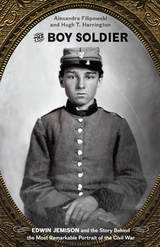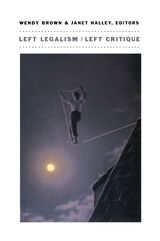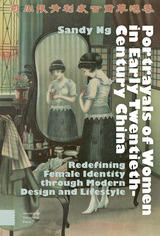
Since its first publication over fifty years ago, the haunting image of Private Edwin F. Jemison has attracted widespread attention from those interested in the Civil War and other wars. His likeness has been compared to that of the Mona Lisa, and it rivals Abraham Lincoln as being one of the Civil War’s most recognized photographs. And yet, his name is not widely known. Some believe that there is something about the mouth that is special, or his hands. Others, perhaps the majority, find his eyes to be powerful and thought provoking. Some wonder if they are looking into the future: Eddie’s own future or the future of all soldiers. Is there a sense of fear or a resignation to fate? He is, foremost, strikingly boyish.
Despite the great interest in the photograph almost nothing has been known of the young man himself, and misinformation about him has circulated since he was properly identified twenty years ago. The authors have spent decades researching the story behind the photograph seeking primary sources for accurate details of Jemison’s life. The result is The Boy Soldier: Edwin Jemison and the Story Behind the Most Remarkable Portrait of the Civil War, the only biography of this young Confederate soldier. We first encounter Eddie as he travels from Louisiana in 1857 to stay with relatives and attend school in Georgia. In the spring of 1861, after Louisiana had seceded from the Union, Eddie enlists in the Confederate army. A little over a week after enlistment, and with minimal training, he is sent to Virginia to fight in the greatest struggle this nation has ever endured. Over 150 years later the intrigue around his photograph is matched by the very peculiar accounts of his death, as well as the controversy of his burial location. The authors examine both issues to complete the story of the young soldier’s life and death.

Until now there has been no summary or overview of the wide range of work contributing to critical legal studies, the movement that has aroused such a furor in the communities of law and political philosophy. This book outlines and evaluates the principal strands of critical legal studies, and achieves much more as well.
A good deal of the writing in critical legal studies has been devoted to laying bare the contradictions in liberal thought. There have been attacks and counterattacks on the liberal position and on the more conservative law and economics position. Now Mark Kelman demonstrates that any critique of law and economics is inextricably tied to a broader critique of liberalism.
There are three central contradictions in liberal thought: between a commitment to mechanically applicable rules and to standards that fluctuate with situations; between intrinsic individual values and the objective knowledge of ethical truths; and between free will and determinism. Kelman shows us the pervasiveness of these contradictions in legal doctrine; their connection to broader political theory and to visions of human nature; and, finally, the degree to which mainstream thought tends to privilege certain of these commitments over others.
The author also analyzes two of the most significant components of jurisprudence today the law and economics discipline and the legal process school. He concludes with a lively discussion of the role of law generally and of “cognitive legitimation,” or the ways in which legal thought can make the unnecessary, the contingent, and the unjust seem natural, inevitable, and fair.

This book weighs alternative conceptions of the equal opportunity principle through an empirical and ethical exploration of the Federal law that directs local school districts to award special educational opportunities to students who are classified as learning disabled (LD). Mark Kelman and Gillian Lester consider the degree to which students with learning disabilities (rather than merely slow learners, the socially disadvantaged, or even the gifted) are entitled to benefits that might well prove advantageous to their classmates, such as extra time to complete an exam or expensive, individually tailored educational programs.
They examine the vexing question of how we should distribute extra educational funds: should we give them to those who have fewer material resources to begin with, to those who might benefit more than others from extra resources, or should we simply strive to create greater equality of outcome? The book exposes a growing conflict between those who want to distribute scarce resources on an individual basis to children who are in need whatever the reason, and those who seek to eliminate group inequalities.

Brown and Halley have assembled essays from diverse contributors—law professors, philosophers, political theorists, and literary critics—united chiefly by their willingness to think critically from the left about left legal projects. The essays themselves vary by topic, by theoretical approach, and by conclusion. While some contributors attempt to rework particular left legal projects, others insist upon abandoning or replacing those projects. Still others leave open the question of what is to be done as they devote their critical attention to understanding what we are doing. Above all, Left Legalism/Left Critique is a rare contemporary argument and model for the intellectually exhilarating and politically enriching dimensions of left critique—dimensions that persist even, and perhaps especially, when critique is unsure of the intellectual and political possibilities it may produce.
Contributors: Lauren Berlant, Wendy Brown, Judith Butler, Drucilla Cornell, Richard T. Ford, Katherine M. Franke, Janet Halley, Mark Kelman, David Kennedy, Duncan Kennedy, Gillian Lester, Michael Warner
READERS
Browse our collection.
PUBLISHERS
See BiblioVault's publisher services.
STUDENT SERVICES
Files for college accessibility offices.
UChicago Accessibility Resources
home | accessibility | search | about | contact us
BiblioVault ® 2001 - 2024
The University of Chicago Press









